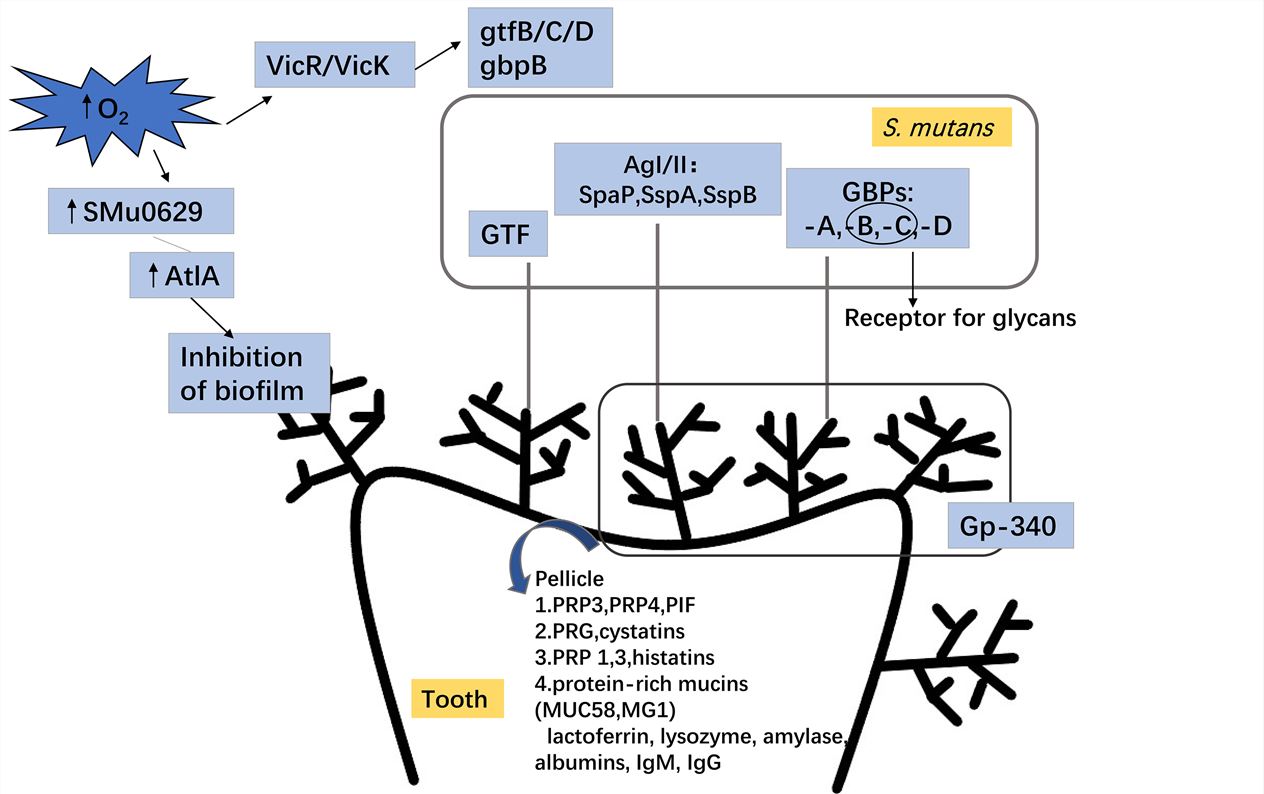Streptococcus mutans Vaccines
Dental caries is a problem that plagues many people, and the main cause of dental caries is Streptococcus mutans bacteria. Creative Biolabs has many years of research experience and achievements in viruses, bacteria, and tumor vaccines. We have also conducted extensive research in S. mutans, and we have established a complete and mature service system and product system for this bacterial vaccine. We are able to meet our customers' needs in all aspects of vaccine design, formulation optimization, pre-clinical evaluation and so on.
Streptococcus mutans
Streptococcus mutans is the main pathogen causing dental caries and is one of the pathogens of infective endocarditis. In 1924, scientists isolated a bacterium from carious lesions. This bacterium looks like a mutant of cocci, so it is named Streptococcus mutans. In the beginning, scientists generally did not associate Streptococcus mutans with caries. With the increasing research on the bacteria, some results finally confirmed the relationship between S. mutans and caries. Streptococcus sobrinus is a bacterium closely related to Streptococcus mutans. Both bacteria can settle in the mouth and cause disease. It is usually not necessary to distinguish between the two bacteria. Therefore, the two bacteria are usually categorized into the mutans streptococci group in clinical practice. S. mutans usually coexist with at least 25 other streptococci in the human oral microbial environment and are most common in pits and fissures in the mouth, accounting for 39% of the total oral streptococci. In addition to causing dental caries, S. mutans is also associated with the pathogenesis of certain cardiovascular diseases. It occurs in heart valve tissue and atherosclerotic plaques at rates of 68.8% and 74.1%, respectively, and is the most common bacterium in these tissues.
Pathogenicity of Streptococcus mutans
S. mutans is currently known to have three properties that enhance its virulence by improving its adaptation in the mouth. It can increase the production of organic acids, form biofilm on the tooth surface, and survive and proliferate in low pH environment. S. mutans can adhere to dental plaque by sucrose-independent and sucrose-dependent. The bacteria first adhere to the saliva component in the enamel pellicle through a sucrose-independent pathway and initiate the attachment process, followed by a sucrose-dependent approach that primarily mediates bacterial colonization on the tooth surface. The most closely related to the sucrose-independent adhesion of S. mutans is the antigen I/II with a molecular weight of 185 kDa. It binds to salivary agglutinin, salivary pellicle and other plaque bacteria. In addition, the proline-rich and alanine-rich domains in antigen I/II are mainly responsible for the interaction with saliva components. In the sucrose-dependent mechanism, glucosyltransferases (GTFs) capable of synthesizing glycans play a major role in the adhesion process of S. mutans. The glycans can hydrogenate the saliva pellicle and bacteria to promote the adhesion of S. mutans. S. mutans can encode GTFs by the three genes gtfB, gtfC, and gtfD. Studies in some rodent models have shown that S. mutans will lose virulence after inactivation of one or more gtf genes. A striking feature of S. mutans is the ability to form biofilms. Biofilm-related adhesion, nutrient flow, and coaggregation can affect bacterial gene expression, growth rate, and quorum sensing, all of which are different from those grown in planktonic state. In addition, some proteins of S. mutans may also be potential virulence factors because they are involved in the metabolism of sucrose and other carbohydrates, including fructosyltransferase (Ftf), extracellular dextranase (DexA), fructanase (FruA), and Dlt1-4 associated with accumulation of intracellular polysaccharides. In addition to the above factors, S. mutans' acid-producing ability and tolerance to acidic environment are also manifestations of its virulence.

Fig.1 The function of S. mutans in the process of the formation of biofilms on the surface of teeth.
Development of the Streptococcus mutans Vaccines
The main strategy for designing the S. mutans vaccine is to target the adhesion mechanism of the bacteria. Therefore, GTFs, adhesin antigen I/II (Ag I/II), and glycan-binding protein (GBP), which are involved in adhesion and accumulation of biofilms, are targets for the preparation of dental caries vaccine. Most of the current research on dental caries vaccines is in the stage of small animal testing. Most of the S. mutans vaccines under study are DNA vaccines and protein vaccines. Among them, the test of purified Gtf protein in monkeys did not show its ability to induce S. mutans-specific immune response. In another monkey experiment, antigens I, II, and III were able to produce protection against dental caries, and the data showed that this protection is related to IgG antibodies. Some other DNA vaccines in rodents have shown that they can produce good immune response and protective effects, so they are promising candidates for S. mutans vaccines and are expected to enter clinical research.
Creative Biolabs is a leader in the vaccine industry. The company has now established a comprehensive vaccine development system after more than a decade of growth. In the past ten years, the company has won a high reputation in the industry by delivering a large number of high-quality and reliable services and products to vaccine developers around the world. If you have any problems with vaccine development, please contact us immediately and we will provide you with the most satisfactory service.
All of our products can only be used for research purposes. These vaccine ingredients CANNOT be used directly on humans or animals.


